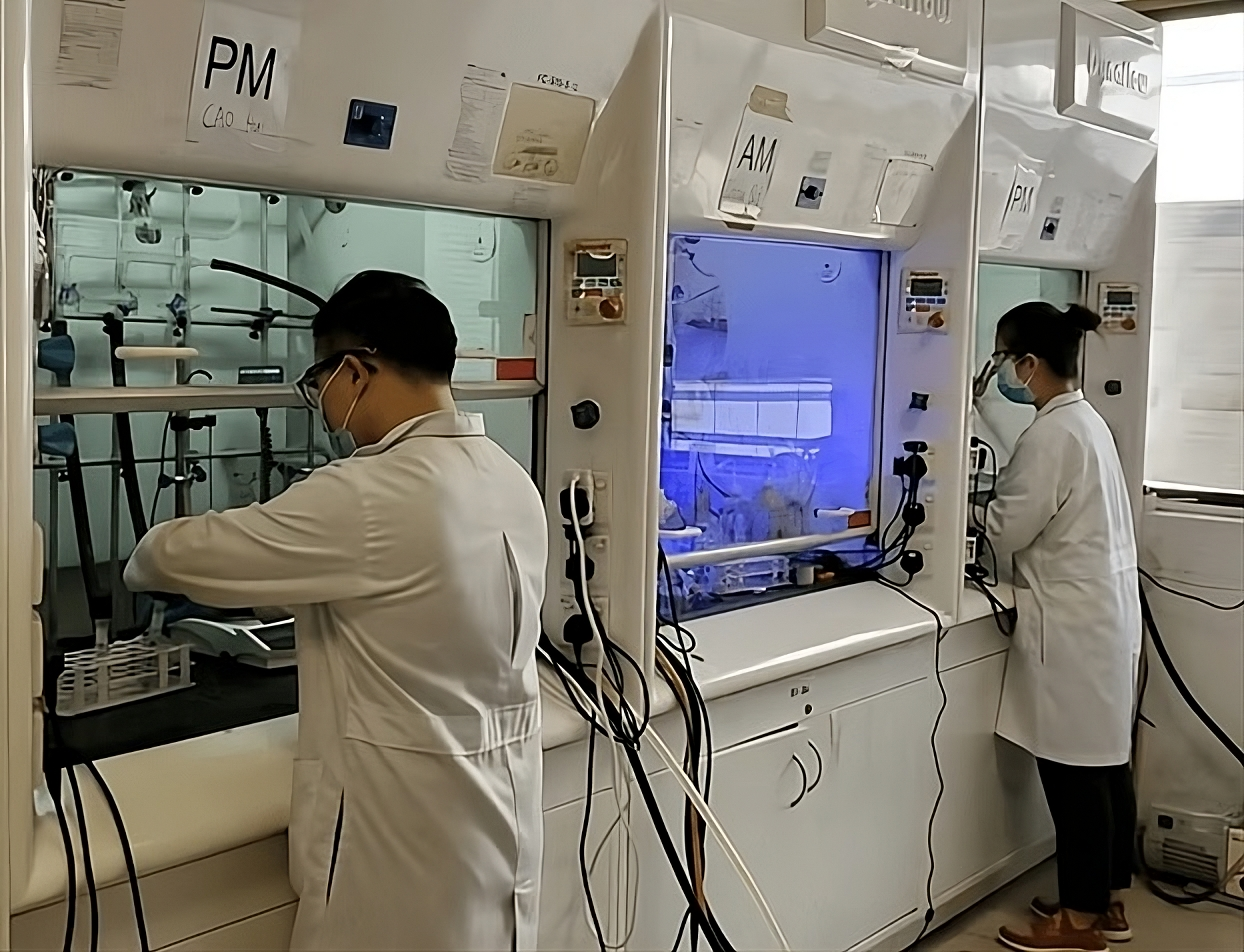
The site-selective late-stage functionalisation of C-H bonds in complex molecules developed from our studies is a very useful class of reactions. This method could potentially find broad application in olefin synthesis, structural modification of pharmaceuticals and natural product synthesis.
Prof Wu Jie, NUS Department of Chemistry
NUSRI Suzhou PI Prof Wu Jie and team have developed a photo-induced method for late-stage functionalisation of carbon-hydrogen (C-H) bonds in organic molecules. The research group used a combination of two types of catalytic methods, the direct hydrogen atom transfer catalysis (with a decatungstate anion, [W10O32]4−) and the cobaloxime catalysis, for the direct activation and alkenylation of alkanes and aldehydes. When these two catalysts work synergistically in the presence of light, a diverse range of cheap feedstocks can be easily transformed into valuable olefins. Other advantages of this strategy include a broad substrate scope, high C-H site selectivity, excellent trans selectivity of the alkene products, and the use of the C-H substrate as the limiting reagent. Moreover, this strategy can be applied in the selective late-stage functionalisation of natural products and important pharmaceutical molecules.
The research findings were published in Nature Communications in 2020.
Cao H; Kuang Y; Shi, X; Wong, KL; Tan, BB; Kwan, JMC; Liu, X; Wu, J* “Photoinduced site-selective alkenylation of alkanes and aldehydes with aryl alkenes”, NATURE COMMUNICATIONS, Volume: 11, Page: 1956, DOI: 10.1038/s41467-020-15878-6, Published: 2020.

InnovFest Chongqing 2023 marked a significant milestone with the signing of 11 projects, including a new technology laboratory by NUSRI Chongqing, Changan Auto and NUS.
A highlight of InnovFest Chongqing was the signing of 11 projects, reflecting a deepening collaboration between Chongqing and Singapore in talent development and industry-university-research (IUR) innovation.
Among the agreements signed was the establishment of a new technology laboratory by NUS, Changan Auto, and NUSRI Chongqing. This collaborative venture will explore technological innovations, particularly in AI technology, the integration of smart cars with the ICT industry, as well as new energy batteries. By leveraging the strengths of universities and research institutes in the innovation ecosystem, the laboratory aims to address challenges faced by enterprises during the engineering and mass production phases, facilitating a holistic IUR development.
Additionally, the signing ceremony saw NUSRI Chongqing forming a partnership with Chongqing University for talent development. Nine industry-research strategic contracts were also inked with enterprises based in Chongqing, catalysing a robust innovation ecosystem in line with the event’s theme.
InnovFest China 2023 puts a spotlight on the expanding collaboration between Singapore and China, underscoring the crucial role of cross-border partnerships in fuelling innovation and progress and enabling both nations to better navigate the challenges of today’s ever-evolving technological landscape.

